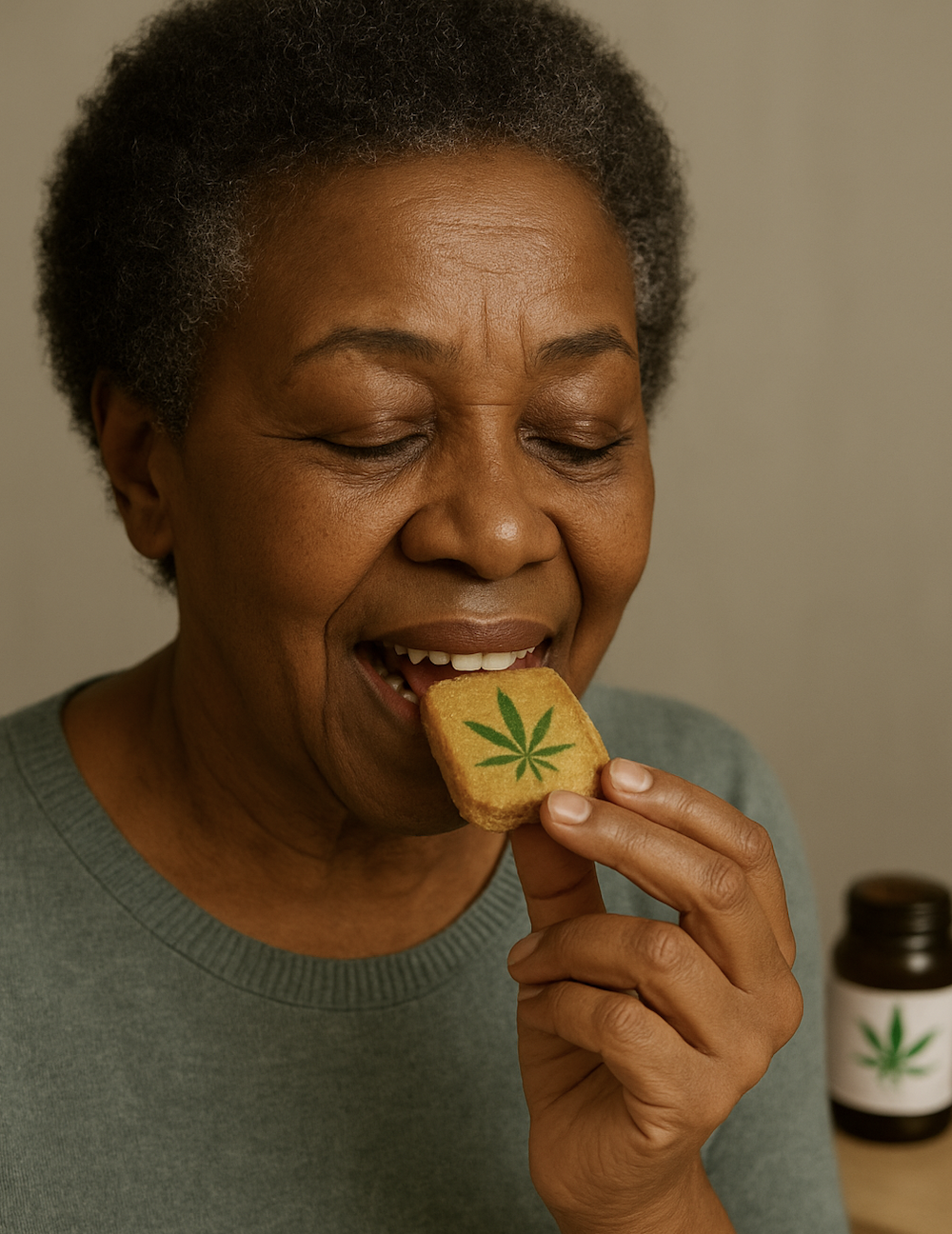High Hopes: Recent Cannabis Research Showing Positive Benefits
September 17, 2025

A few months ago, we reported on studies suggesting the potential harm that may come to older adults from using cannabis, including cardiovascular risks and the possibility of developing cannabis use disorder. Yet, at the same time, we also reported on the increasing use of cannabis products by older adults, whether through smoking, edibles, or some other method. One thing above all else is clear – while many individuals find positive results from using cannabis (the agebuzz Facebook comments certainly attest to that!), scientifically-validated clinical trials examining cannabis use by older people are still somewhat limited. Many factors may influence the benefits and burdens of cannabis, including length and frequency of use, strength of THC in the cannabis, and the delivery method (smoking versus edibles, etc). Valid questions exist regarding the effects of cannabis on chronic diseases, the interaction it may have with a person’s prescription medications, and its value as a pain relief product in comparison to other products on the market. For a review of some of these questions and concerns, hold off on that gummy and give a look here.
At the same time, we can say that several recently published studies report some potential positive outcomes from the use of cannabis by older adults. For example, a recent literature review of existing studies addressing cannabis use, aging, and longevity found that cannabis may hold some benefit for older adults while at the same time being more risky for younger adults. Finding 11 pre-clinical studies and 7 human studies, this literature review reports that later life use of cannabis may hold some brain benefits, though all existing studies reviewed had limitations. However, according to a new study in Research Square (not yet peer-reviewed or published), cannabis use by older adults may slow down the biological aging of the brain and may even improve cognitive function. Data from over 25,000 UK adult participants showed that the brains of cannabis users had characteristics usually associated with younger brains. It’s hypothesized that using cannabis may lead to the improvement of communication between different parts of the brain. In fact, writing in Psychology Today, Dr. Gary Wenk suggests that regular low-dose use of cannabis may improve cognitive performance and reduce brain inflammation in older adults. For more on his recommendations, read here. Another study recently published in the Journal of the International Neuropsychological Society found that low-frequency cannabis use is generally well tolerated by older adults, with no difference in the cognitive performance of those older adults who use cannabis and those who abstain.
While many report the use of cannabis later in life for pain management from either injury or such chronic diseases as arthritis, there is now emerging research to also support the use of cannabis to address insomnia and anxiety in older adults. According to a new study published in PLOS Mental Health, which followed 124 participants for up to 18 months, those who used cannabis-based products reported improved sleep, less anxiety and depression, and overall a better quality of life. Some also reported less pain, and few side effects were reported. While this was not a randomized clinical trial, the documentation of improved sleep with few side effects over the course of 18 months suggests that there very well may be a role for cannabis use when conventional sleep improvement methods fail.
Overall, these new studies suggest a growing interest among the scientific community in demonstrating the validity of cannabis as an effective therapy for some of the health challenges of aging. At the same time, caution is necessary, and additional research among large populations is needed to support and confirm preliminary findings. But the scientific evidence seems to be building for the positive value of using cannabis if it’s something you’d like to try. Of course, you should have a good conversation with your primary care physician to lessen the likelihood of harmful side effects or interactions with other therapies you’re using. But if you want to light up a joint or consume an edible, the scientific evidence to support that seems to be growing.







